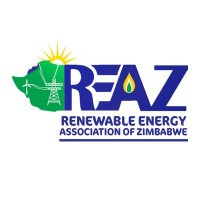RENEWABLE Energy Association of Zimbabwe (Reaz) expects next week’s International Renewable Energy Conference and Expo 2024, sponsored by Alpha Media Holdings (AMH), to produce concrete plans to build a sustainable energy future.
RENEWABLE Energy Association of Zimbabwe (Reaz) expects next week’s International Renewable Energy Conference and Expo 2024, sponsored by Alpha Media Holdings (AMH), to produce concrete plans to build a sustainable energy future.
AMH, in partnership with the Ministry of Energy and Power Development, will host the fourth international renewable energy indaba in the resort town of Victoria Falls from February 27 to March 1.
Running under the theme ‘Building a Sustainable Energy Future’, the conference is expected to be officially opened by President Emmerson Mnangagwa.
AMH are publishers of NewsDay, The Standard and Zimbabwe Independent. It also owns the broadcasting entity, Heart & Soul.
In an interview with this publication, Reaz chairman Isaiah Nyakusendwa said he anticipated future plans on how to generate more electricity from renewable sources in the country becoming more actionable from the conference.
“We want to see more electricity generation coming from renewables and given the climate change issues that are offered,” he said.
Presenters at the conference include Nyamazela Net Metering managing director Matsotso J.Vuso, the Ambassador of Canada to Zimbabwe Adler Aristilde and the Ambassador of the European Union to Zimbabwe, Jobst von Kirchmann.
Others are SouthPole Consulting founder Tendai Musasa, Zimbabwe Energy Regulatory Authority Electricity senior engineer Man'arai Ndovorwi, and Techold Engineering - Technology & Waste to Energy managing director Kevin Mutete, African Transmission Corporation director Victor Utedzi and Carbon Markets corporate lawyer Nsikelelo Mafa Moyo.
The event will cover discussion topics which include financing, climate change, hydropower, wind, solar photovoltaic, hydrogen, biogas, e-mobility, geothermal, net metering, solar thermal, battery storage, energy efficiency, and technologies in renewable energy.
In December 2023, the World Bank urged the government to address the energy deficit facing the country as it estimated these power cuts cost the economy at least US$1,27 billion annually.
The Bretton Woods Institution encouraged the government to quickly adopt renewable energy projects as energy demand is expected to reach 5 177 megawatts by 2030.
“The government is planning to expand electricity access through various sources, but it remains unclear how the investment needed will be financed,” the World Bank said in its Zimbabwe Economic Update released in December 2023.
“The biggest planned increase in electricity supply comes from the Batoka Gorge Project along the border with Zambia (1 200 MW for Zimbabwe) projected for completion after 2034, and the Devil’s Gorge (1 200 MW) to be completed by 2040.
“This is complemented by additional energy projects in solar, wind, mini-hydro and geothermal. The National Renewable Energy Policy of 2019 is targeting an additional 2 100 MW by 2030 from renewables, mainly solar PV. This would be complemented by storage at the Kariba reservoir and battery energy storage systems.
“As such, while there are significant opportunities to expand electricity generation, it remains unclear how this expansion will be financed going forward.”
The World Bank added: “Financing electricity expansion from domestic resources alone will be challenging, so there is an urgent need to involve more private investors together with the international development community.”
Zimbabwe has been grappling with an energy crisis for years leading to daily power cuts that last for hours.
Apart from consumers, companies in the manufacturing, mining and agriculture sectors have been hit hard from these cuts at a time when they are vital sectors for economic growth.
Causing the power cuts are an increase in climate change, declining forex to service power generating machines, bureaucracy in establishing new independent power producer projects, and a lack of investment into the sector.
Energy and Power Development minister Edgar Moyo last year said investment was the main challenge.
“Everything hinges on currency convertibility, number one, because that is the attraction,” he said, during an interview with the paper,” he said.
“Number two, everything hinges on the capacity of the off taker to pay through a cost reflective tariff which is now being addressed so these are some of the measures that have been put in place to attract investments into that.”
In the 2024 Zimbabwe Infrastructure Invest Development plan presented by the Treasury last December, renewable energy projects are one of the main priority areas of the proposed ZW$10 trillion investment plan.


© Voice Of Zimbabwe Privacy Policy Contact us